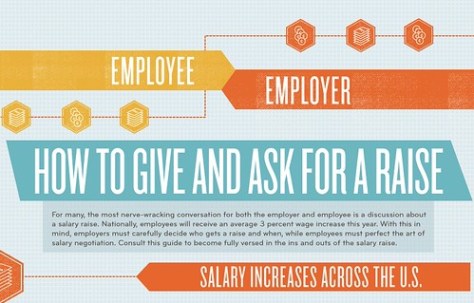Salary negotiations are tricky. And this is especially the case when you have been with the same employer for a number of years. You are likely to have grown somewhat comfortable, happy even. What if they say no? Do you have to quit?
The longer you work somewhere, the more personal the threat of rejection is too. After all, your employers are likely to know you pretty well. Are you really not worth more money?
Unfortunately however, those who don’t ask, rarely receive. If you want a raise, you’re therefore going to have to man up and ask for one. Before you charge into your bosses office however, make sure that you first do the following five things.
Make Your Value Known
Were you caught sleeping at your desk last week or did you just land a major client? Your answer to this question should determine whether or not now is the right time to ask for a raise.
Clever employees only ask for a raise when they are at their most valuable. They wait until their purpose is clear. They wait until their absence would appear to be a major loss for their employer. What have you done recently to deserve a raise?
Write Down a Number
Do you know how much you are worth? Before even thinking about asking for a raise, you need to understand what a reasonable raise would be. Ask for too much and you can expect an immediate refusal. Ask for too little and you’re a chump.
Use one of the many salary calculators available online. Factor in your qualifications and experience and determine what people like you are making nationwide. Ask your co workers what they make, while being tactful, of course. If you’ve got a friend in human resources, call him.
Once you’ve established what you’re worth, ask for ten percent more. It pays to be strategic when it comes to salary negotiations. You also might just get it.
See Your Boss Smile
Your boss might act like a robot but he’s a human just like you. He probably doesn’t like Mondays and some day’s he probably has a hangover. Timing is therefore something that you want to have on your side.
You shouldn’t use this as an excuse to procrastinate for weeks at a time, but you also shouldn’t approach him when he’s screaming.
Ask Yourself What You Want
You want money. We all want money. But sometimes employers don’t want to give it away. They will therefore come up with other possible incentives. These can include a company car, better health insurance, more time off, a nicer chair.
If all you want is money, stand your ground. But it is worth noting that the more flexible you are in terms of what you want, the more likely you are to get it. And who wouldn’t want a month off?
Practice Your Rejection Speech
Finally, the biggest mistake that you can make when it comes to salary negotiation is to raise your voice. If your request for more money is turned down, a smile might be difficult, but it’s necessary.
Salary negotiation is not a one time question and answer session, it’s an ongoing process. If you are turned down today, there is no law that says you can’t ask again next month. In fact, your boss is likely to expect it.
Provided you are graceful in defeat and you don’t take insult in rejection, you can ask for a raise as many times as you like. Provided you are worth it, you will eventually get it. But if you start screaming, it’s game over. And you just lost.
Ed Smith is a well-known job consultant based in London who shares the details for those seeking internal communication jobs through his informative blogs.






